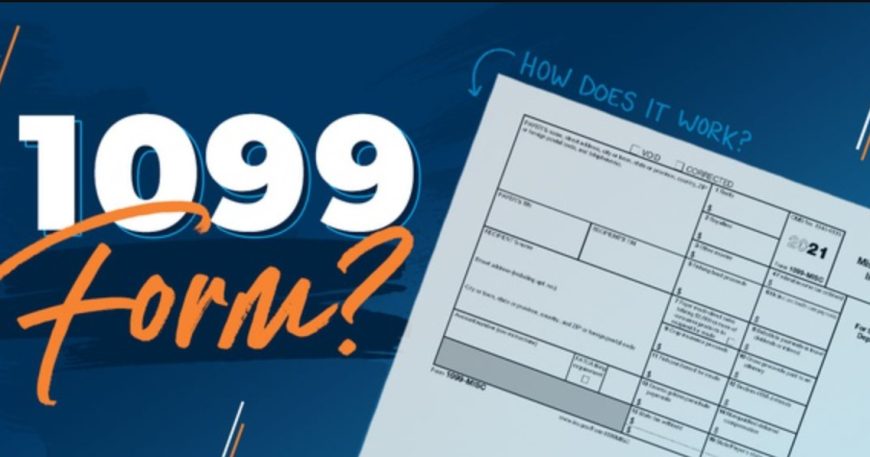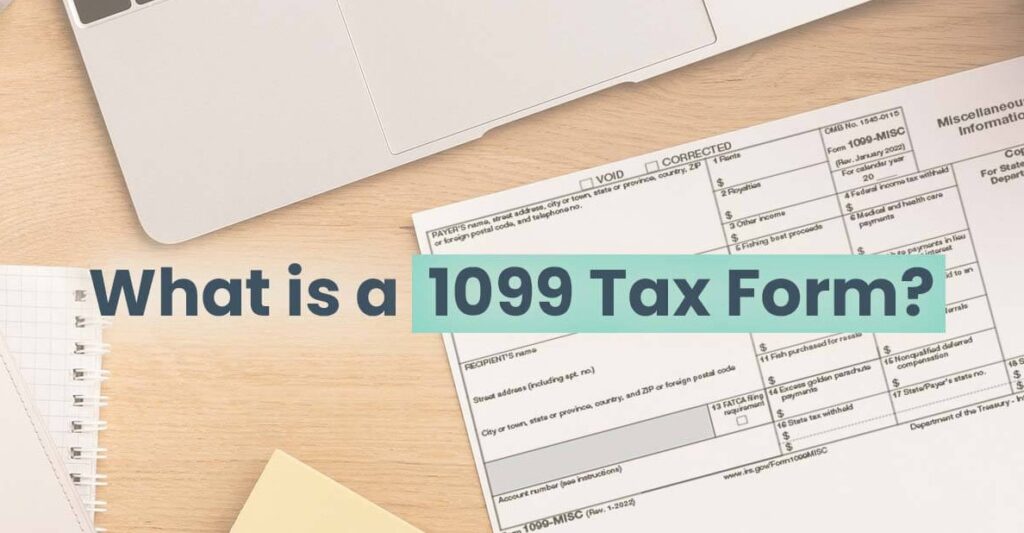Businesses issue the 1099 form to individuals or entities that earn at least $600 in payments during the tax year. They must file the Form 1099 with the IRS and provide it to the recipient by January 31 of the following year.Tax compliance is a nightmare, especially when talking about tax forms like 1099. The business owner, freelancer, or independent contractor, it doesn’t matter; each of you must know all about the 1099 Form Filing for financial transparency and the fulfillment of your tax liability.
At Syed Professional Services,
We specialize in making the complexities of 1099 form preparation, filing, and management so that you can focus on what you do best—running your business. In this blog post, we will dive deep into what the Form 1099 is, its importance, its types, and how we can assist you in staying compliant.
What Is a 1099 Form?
Our tailored solutions ensure you meet your tax obligations with accuracy and efficiency, whether you are a small business owner or a contractor.
The 1099 is essentially a financial reporting tool. For businesses, it’s a way to document payments made to non-employees. For contractors, it serves as proof of income that must be reported during tax season.
Key Details About the 1099 Form Filing:
It reports non-salary income to the IRS.
Businesses issue the 1099 form to individuals or entities that earn at least $600 in payments during the tax year. They must file the 1099 with the IRS and provide it to the recipient by January 31 of the following year
Why Is the Form 1099 Important?
The 1099 form is essential in ensuring that all income is reported to the IRS. Failure to issue or file this form will lead to penalties for both the payer and the recipient.
For businesses, the Form 1099 provides a record of payments to independent contractors, ensuring that there are no audit issues or compliance problems. For the independent contractor, the 1099 form is an essential document for the preparation and filing of personal income tax.
Penalties for Mismanaging 1099 Forms
Late filing or failure to file can result in fines ranging from $50 to $550 per form, depending on the delay.
Intentional disregard of filing requirements can result in severe penalties.
Types of 1099 Forms
There are more than a dozen different forms of the 1099 form, but some of the most commonly used include:
1. Form 1099-NEC (Non-Employee Compensation)
This is the most widely used 1099 form, issued to independent contractors earning $600 or more for their services during the tax year.
2. Form 1099-MISC (Miscellaneous Income)
For reporting income such as rents, royalties, and awards. Although it is no longer utilized for non-employee compensation, the IRS demands that businesses instead use the 1099-NEC form.
3. Form 1099-INT (Interest Income)
Banks or financial institutions issue this for reporting interest income of $10 or more received during the calendar year.
4. Form 1099-DIV (Dividends and Distributions)
Reports dividend income and other distributions from investments like stocks or mutual funds.
5. Form 1099-K Payment Card and Third-Party Transactions
This is used in reporting payments through third-party processors that include PayPal or credit card transactions.
How does the 1099 Form work?
The 1099 form includes two main parties:
The Issuer: Usually a business or entity that paid a contractor or non-employee for services offered.
The Recipient: The contractor, freelancer, or individual that received the payment.
Here’s how it goes:
The issuer compiles payment data for all contractors earning $600 or more during the tax year.
The 1099 form must be completed and issued to both the contractor and the IRS by January 31.
The recipient uses the form to report the income on their tax return.
Who Needs to File a 1099 Form?
If you’re a business owner who hired independent contractors, you’re required to file a Form 1099 if:
Payments to the contractor were $600 or more during the tax year.
Payment was made in cash, by check, or by direct deposit (payments processed through third-party networks may be reported on Form 1099-K).
Typical Businesses that Issue 1099s
Small businesses are paying freelancers for web design, content creation, or IT work.
Real estate companies pay property managers or landlords.
Healthcare providers who contract out administrative work.
Common Problems with 1099 Reporting
Filing 1099 forms may sound simple, but it can quickly become complicated, especially when managing multiple contractors. Common challenges include:
Data Collection Errors: Tracking down contractor payment details can be time-consuming and prone to mistakes.
Tight Deadlines: Missing the January 31 deadline can lead to penalties.
Understanding Tax Codes: Differentiating between 1099-NEC, 1099-MISC, and other forms can be confusing.
Volume of Forms: Companies with numerous contractors have challenges in managing big volumes of 1099 filings.
How Syed Professional Services Makes 1099 Filing Easy
We take the stress of preparing and filing 1099 forms off your shoulders at Syed Professional Services. Here is how we do it:
1. Accurate Data Collection
We collect and prepare all the payments made to your contractors and then organize all these details for proper accuracy.
2. Compliance with IRS Regulations
Our experts keep abreast of IRS guidelines to ensure your business stays compliant.
3. Timely Filing
We make sure all 1099 forms are ready and sent both to the IRS and contractors before the deadline.
4. State-of-the-Art Technology
Cloud-based, secure systems make the entire 1099 filing process a breeze, reduce possible errors, and save you even more time.
5. Recordkeeping
Store 1099s safely, and audits and future filings become a hassle-free process.
The Benefits of Partnering with Syed Professional Services
Work with Syed Professional Services and enjoy the following benefits:
Peace of Mind: Your 1099 forms are in good hands.
Time Savings: You will have more time to focus on business growth.
Cost Efficiency: Avoid penalties and costly mistakes.
Scalability: Whether you have one contractor or one hundred, our services scale to meet your needs.
FAQs
What is the primary purpose of the 1099 form?
The 1099 form is a reporting of income not paid through a salary, so it will be reported accurately for businesses and contractors.
When are the 1099 forms due?
Businesses must send a 1099 form to recipients and file it with the IRS by January 31 of the next tax year
What if I don’t file a 1099 form?
If you have failed to file a 1099, the penalty can range from $50 to $550 per form, depending on the timing of your filing.
Do I need to file a 1099 for contractors paid by PayPal?
Payments made through third-party processors, such as PayPal, are typically reported using Form 1099-K instead of the standard 1099-NEC.
Can Syed Professional Services handle massive volumes of Form 1099?
Yes, we specialize in managing 1099 filings for businesses of all sizes, whether you’re handling one contractor or hundreds.
Do 1099-NEC and 1099-MISC differ?
Yes. Businesses use the 1099-NEC to report non-employee compensation, while they use the 1099-MISC to report other types of miscellaneous income, such as rents or royalties.
Conclusion
Reporting non-salary income through the 1099 form is a tool that ensures the transparency and compliance of businesses and contractors. The process of handling these forms is quite complex and time-consuming. That is where Syed Professional Services comes into play.
We will guide you through simplifying the 1099 process, reducing risks, and focusing on business growth. Our tailored solutions ensure accurate and efficient management of your tax obligations, whether you are a small business owner or a contractor.





